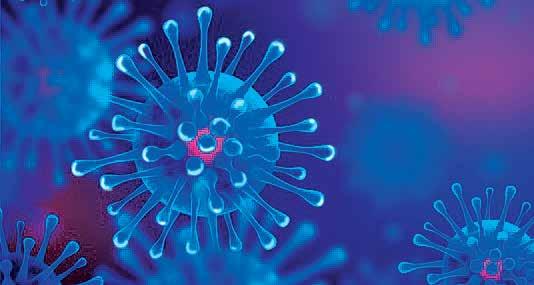
5 minute read
Legal Matters
Legal Matters DOJ Creates National Rapid Response Strike Force as Focus on Health Care Fraud Continues to Grow
By Brian T. Rafferty, JD Brea M. Croteau, JD Polsinelli, PC
Advertisement
As COVID-19 continues to ravage the United States, the Department of Justice (DOJ) has recently announced its new National Rapid Response Strike Force within the Health Care Fraud Unit to investigate and prosecute fraud cases involving major health care providers that operate in multiple jurisdictions. The newly created Strike Force will focus on the investigation and prosecution of individuals and corporations, and cases like the large-scale rural hospitals billing fraud matter indicted in the Middle District of Florida and the global resolution with Tenet Healthcare Corporation and related individual prosecutions will be within the purview of the Strike Force. Those cases involve a range of alleged violations of federal statutes, including healthcare fraud, conspiracy, and the Anti-Kickback Statute. The Strike Force relies on data analytics to target fraudulent activities, as opposed to the traditional reliance on whistleblowers and qui tam actions in the health care arena. Additionally, the Strike Force is based in Washington, D.C., with experienced investigators and prosecutors enabling the Strike Force to act quickly and take the burden away from local U.S. Attorneys’ offices that are inundated with complaints of COVID-related fraud.
The Strike Force will also handle the prosecutions of those seeking to criminally exploit the COVID-19 pandemic through health care fraud and related financial fraud schemes. The Strike Force will handle criminal cases like the case recently brought against a North Carolina man who fraudulently sought over $6 million in Paycheck Protection Program (PPP) loans for several entities. His PPP loan applications were supported by false statements about the companies’ employees and payroll expenses, and fake documents, including falsified tax filings. Charges, in that case, included wire fraud, bank fraud, and engaging in unlawful monetary transactions. The case was investigated by the U.S. Treasury Inspector General for Tax Administration, the FDIC Office of Inspector General (OIG), and the FBI, with the assistance of the Small Business Administration OIG.
This is not the only example of a criminal case swiftly investigated and indicted in recent months specifically targeting those trying to exploit PPP loans and other COVID-related relief programs. In Texas, a woman was charged after receiving more than $1.9 million in PPP loans on behalf of two entities that neither had employees nor paid wages consistent with the amounts claimed in the loan applications. A National Football League player in Florida was indicted
for his participation in a conspiracy to obtain more than $24 million in PPP loans, using more than $104,000 of the proceeds from the fraudulent loans to purchase luxury goods from Dior, Gucci, and jewelers. Two brothers in New York were charged with wire fraud conspiracy after submitting at least eight fraudulent loan applications in an attempt to obtain nearly $7 million in PPP loans. These examples are an indication of the explosion of criminal prosecutions related to the disbursement of COVID relief funds that is sure to come in the near future. Along with criminal prosecutions, an increase in COVID-related civil enforcement actions is also to be expected with the creation of the Strike Force. For example, the DOJ has used
see Legal Matters...page 12

University of Houston Partners with AuraVax Therapeutics on COVID-19 Vaccine Exclusive Option Agreement Covers Inhalation Vaccine Developed by UH Professor

The University of Houston has entered into an exclusive license option agreement with AuraVax Therapeutics Inc., a Houston, TX based biotech company developing novel vaccines to help patients defeat debilitating respiratory diseases such as COVID-19. Under terms of the agreement, AuraVax has the option to exclusively license a new intranasal COVID-19 vaccine technology developed by Navin Varadarajan, M.D. Anderson Professor of Chemical and Biomolecular Engineering. Varadarajan is also a co-founder of AuraVax.
The vaccine is a nasal inhalant, like FluMist.
“We plan to stop COVID-19, a respiratory virus, at its point of entry — the nasal cavity — and we believe our intranasal platform is a differentiated approach that will lead to a vaccine with increased efficacy to create sustained immunity to COVID-19,” said Varadarajan.
“AuraVax, being created by a UH professor, is the ideal partner for us, and what better cause than to advance the creation of a vaccine to COVID-19, arguably the primary challenge facing our generation. The partnership has my wholehearted support,” said Amr Elnashai, University of Houston vice president for research and technology transfer.
The race for more effective ways of vaccinating against COVID-19 and other respiratory diseases has led to a broad and extensive focus on various protective mechanisms of action. Based on pre-clinical work, Varadarajan reports his technology not only elicits a mucosal immune response, but also systemic immunity.
“For airborne pathogens, the nasal compartment is the first point of defense that needs to be breached,” said Varadarajan. “Mucosal immunity and vaccines are fundamentally important for a wide range of pathogens including influenza, severe acute respiratory syndrome coronavirus (SARS-CoV) and the current SARS-CoV-2.”
Varadarajan is using the spike protein, which helps the virus enter the target cell, and is the major target for neutralizing antibodies as it binds to the ACE 2 cellular receptor, for virus entry. He prefers using proteins because of their ability to induce strong immune responses, flexibility and scalability, and the absence of infectious particles.
“We believe AuraVax has a competitive advantage given the immune responses and a supply chain that is well-suited for widespread distribution and self-administration distribution,” said Varadarajan. “We are excited to be collaborating with the University of Houston and look forward to future success by advancing the development of this novel intranasal vaccine technology to address a multitude of respiratory viruses, starting with COVID-19.”
Luxury Watches & Jewelry




Pre-Owned Rolex, Cartier, Omega, Tag Heuer Rings, Necklaces Bracelets, Earrings We Purchase Unwanted Jewelry Watch Repair

COMPANY WATCHSWISS





